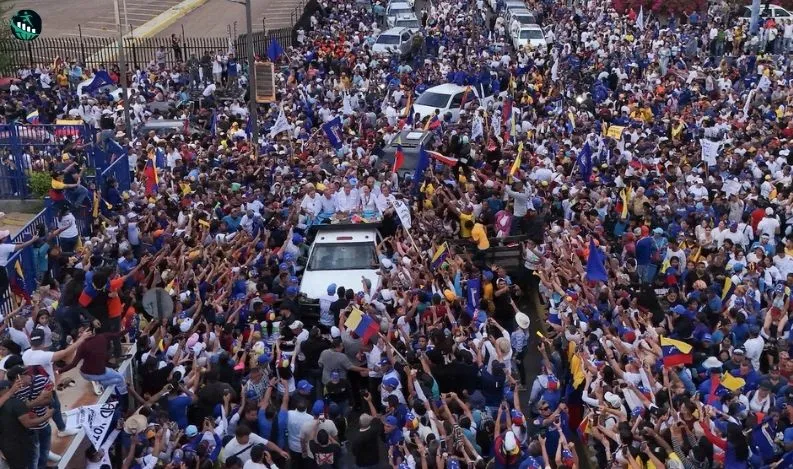
Venezuelans in Tense Wait for Election Results
Polls are starting to close in Venezuela's presidential election, where Nicolás Maduro of the governing socialist PSUV party is seeking a third term in office. Although polling stations were scheduled to shut at 18:00 local time (23:00 BST), they must remain open if people are still queuing to vote.
Mr. Maduro's main challenger is Edmundo González, a former diplomat supported by a coalition of opposition parties. The opposition has urged supporters to vigil at polling stations to verify the counting process during the crucial hours after closing, amid fears of potential vote tampering by the PSUV. Opinion polls suggest that Mr. González has a significant lead over the incumbent, reflecting the sentiment at a polling station in Petare, a poor neighborhood of Caracas, where many voters expressed their desire for change.
Since assuming the presidency in 2013, Mr. Maduro has overseen an economic collapse, with GDP shrinking by 70% and over 7.7 million people fleeing the country. “This government has had all the opportunities to make Venezuela a great country, but instead we have misery,” voter Hector Emilio D’Avilia told the BBC. Adriana Arreaza, tearfully, stated her desire for “decent salaries for teachers and doctors, quality of life for the elderly and the youth, and a change for our country.”
Concerns about potential election tampering persist, given that Mr. Maduro's 2018 re-election was widely considered neither free nor fair. The opposition has faced numerous obstacles, including the disqualification of their chosen candidate, María Corina Machado, who remains a prominent opposition figure urging vigilance during the counting process. Community leader Katiuska Camargo emphasized the determination of Venezuelans to see the government "leave power immediately," citing numerous human rights violations and excessive emigration.
The PSUV has held power in Venezuela for 25 years, first under Hugo Chávez and then under Mr. Maduro. Despite control over the executive, legislative, and much of the judiciary, the party still enjoys core support. Felix García, a supporter, praised the government for providing “help for people like me with disabilities."
Mr. Maduro has vowed to win the election "by hook or by crook," warning of a "bloodbath" if he loses. The National Electoral Council (CNE), responsible for organizing the election and announcing the results, is dominated by government loyalists, including its president, Elvis Amoroso, a close ally of Mr. Maduro.
Despite having the world's largest oil reserves, Venezuela's oil output has plummeted due to lack of investment, mismanagement, and oil sanctions imposed by the US following the 2018 presidential election. The lifting of these sanctions could impact global oil prices.
Voting in Venezuela is electronic, with voters selecting their preferred candidate on a machine that sends results to the CNE headquarters and prints a paper receipt placed in a ballot box. Parties are legally allowed to witness the count of these paper receipts at each polling station, which the opposition will monitor closely to ensure they match the announced results.
News Source:- bbc.com



Recent Comments: